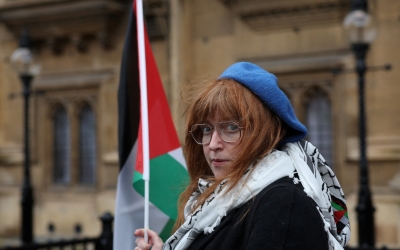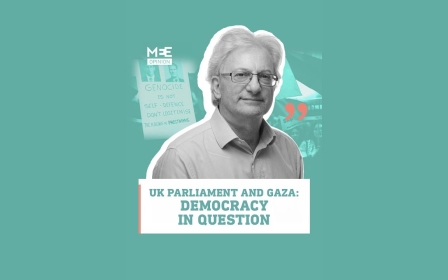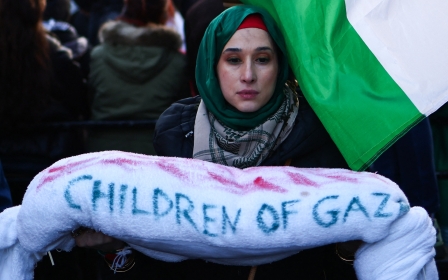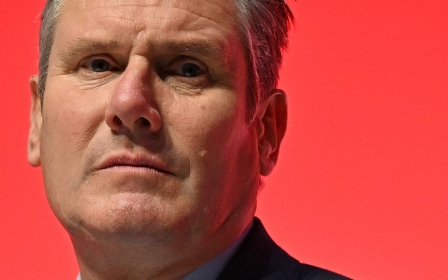'No-go zones': It's election year and the anti-Muslim trope is back again
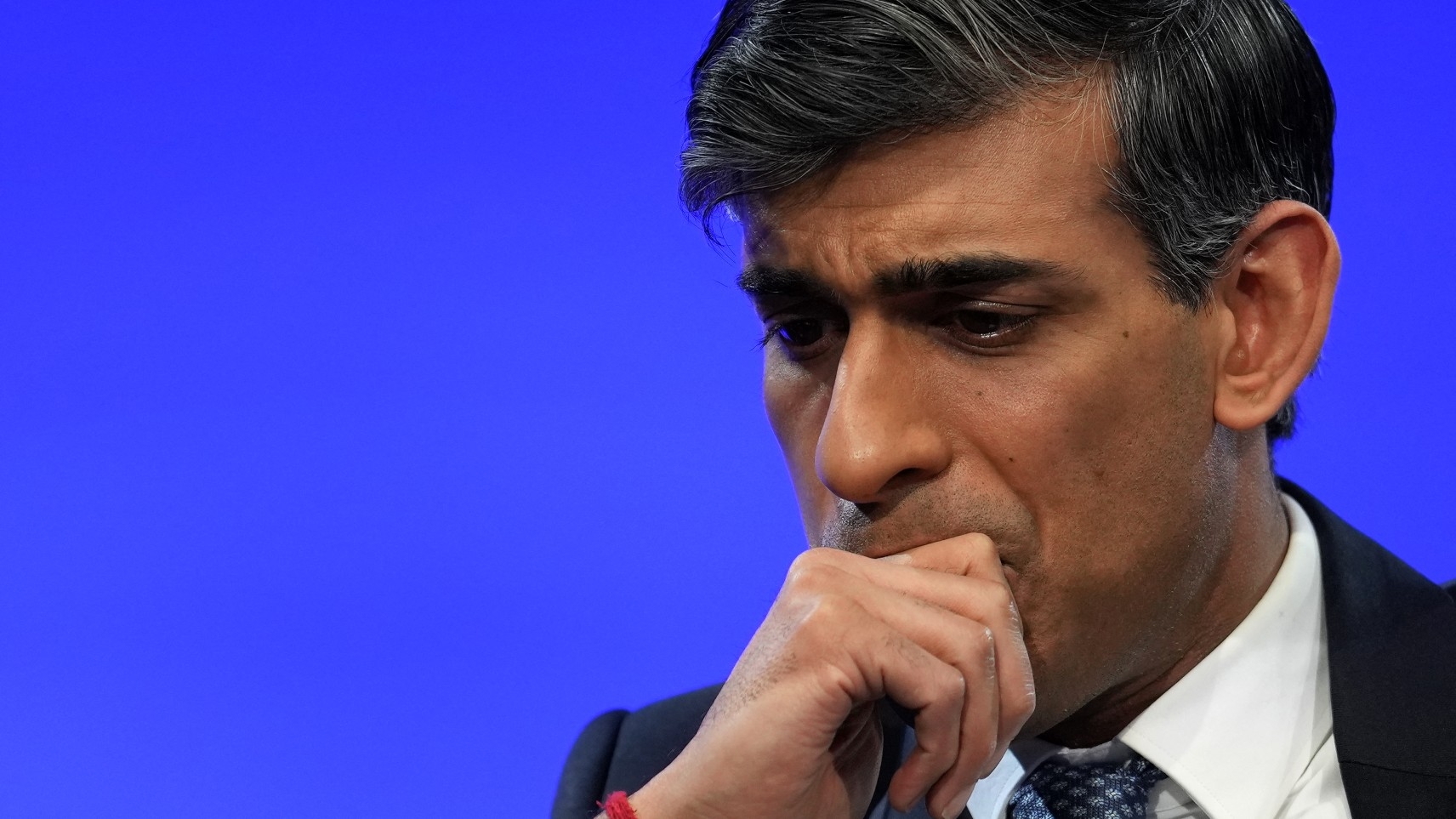
Calling Tower Hamlets and other areas with large Muslim populations, such as Birmingham, “no-go zones” in the UK is nothing new. A general election is looming, and politicians are doing whatever they can to whip up votes.
Over the last two decades, leading figures from across the political divide have repeatedly invoked Islamophobic tropes. In 2008, Church of England bishop Michael Nazir-Ali asserted that Islamic extremists had created “no-go” areas in Britain where it was dangerous for non-Muslims to enter. Far-right politician Nigel Farage said the same in 2015 about the French cities of Paris and Marseille.
Former British Prime Minister Boris Johnson has also made Islamophobic statements, including comparing women in niqabs to “letter boxes” in 2018, a year before he was elected to the nation’s top job.
So what is different about Conservative MP Paul Scully’s recent remarks, in which he cited the long-running conspiracy theory that parts of the UK were “no-go areas” for non-Muslims? (He later apologised for the comments).
New MEE newsletter: Jerusalem Dispatch
Sign up to get the latest insights and analysis on Israel-Palestine, alongside Turkey Unpacked and other MEE newsletters
Follow Middle East Eye's live coverage of the Israel-Palestine war
We cannot speak about Scully’s comments without addressing Prime Minister Rishi Sunak’s speech on Friday, attempting to recast Muslims’ political participation as a form of extremism following George Galloway’s win in Rochdale. Galloway is a figure who galavants into Muslim-majority areas and uses populist rhetoric to garner support for an election.
A distraction tactic
Sunak’s speech is a distraction tactic and feeds into the hyperbole that Muslims are seeking to take over when only 18.8 percent of Rochdale is Muslim. Around 40 percent of Rochdale voted for Galloway, thus suggesting there were plenty of non-Muslims who voted for him too.
However, this particular by-election is now being used to frame faux concerns around extremism when many, including non-Muslims, are simply fed up and tired of the two main political parties.
Conceiving the by-election win as "beyond alarming" is a way to intimidate people to not show up for Palestine. Throwing Palestine under the "extremism" banner is a conduit to silence any show of solidarity with Palestine.
This will and should, in fact, induce more civil disobedience until we see the end of the occupation of Palestine.
Our freedom to fight for truth, for justice was never handed down but fought for, and the people who are here to fight with and for Palestine will continue in the struggle, and no amount of fear-mongering will prevent this. Not even Sunak.
The timing is important. It has been nearly five months since Israel launched its war on Gaza, which has killed more than 30,000 Palestinians. Political pressure is mounting on British MPs to back a ceasefire, with public opinion polls showing strong support for ending the war. Hundreds of thousands of people have protested in London to demand a ceasefire, while also calling for an end to the occupation and British arms sales to Israel.
Even as politicians like Suella Braverman, the former home secretary, decry protesters as “hate-filled mobs”, and as demonstrators face police intimidation and possible arrest, many are continuing to peacefully take to the streets.
Last week, hundreds of protesters stood outside parliament as MPs were set to discuss a motion calling for a Gaza ceasefire, hoping to pressure their elected officials to do the right thing. Instead, demonstrators were met with heavy-handed policing, and parliamentarians avoided voting on the motion through procedural wrangling.
Fomenting distrust
Overnight, the focus again shifted to the supposed “Islamists” who have taken over Britain - and it is within this context that Scully’s comments appeared.
The political establishment is unsure of what to do, as people continue to use democratic avenues to lobby their MPs to demand an end to the slaughter of Palestinians
We have reached a moment when the political establishment is unsure of what to do, as people continue to use democratic avenues to lobby their MPs to demand an end to the slaughter of Palestinians. Tower Hamlets has been at the forefront of this movement, with Palestinian flags flying on lampposts and murals featuring slain Palestinian journalists.
Although the area, which has a significant Muslim population, has been at the receiving end of Islamophobic vitriol since the 9/11 attacks, its residents will not stop speaking out.
For residents in Tower Hamlets, a borough with one of the country’s highest poverty rates, the real question is whether this area is a “no-go” for them, as they grapple with the rising cost of living. The poverty here stands in stark contrast to Canary Wharf’s tall, flashy buildings.
I have been involved in a campaign for access to social housing, as the real-estate market has made many parts of the borough inaccessible to locals. Historically, parts of Tower Hamlets were actual “no-go areas” for the nascent Bangladeshi community, which became a target for the far-right National Front.
Thus, to invoke "no-go areas" as a talking point to conjure a specific image of a Muslim majority area, only foments continued distrust about Muslims, adding to the never-ending debate over “the failure of multiculturalism”.
There is no evidence of any proven “no-go area”, even as the concept remains a source of anxiety for those who view Muslims as suspicious, untrustworthy people. Using Muslims as political fodder reflects the inadequacies of our elected officials. The disease of Islamophobia cannot be cured by this system; the solution can only be found in liberation politics.
The views expressed in this article belong to the author and do not necessarily reflect the editorial policy of Middle East Eye.
Middle East Eye delivers independent and unrivalled coverage and analysis of the Middle East, North Africa and beyond. To learn more about republishing this content and the associated fees, please fill out this form. More about MEE can be found here.



